[unordered_list style=”tick”]
- #7784-12 is Bond’s Polyamide, temperature resistant 1/2″ diameter glue sticks
- Medium open time, good general purpose, flexible glue suitable in conditions that require resistance to a wide temperature range
- Available packages of 10 glue sticks
- Latex based, flexible, quick penetration glue for carpet applications.
- Service temperature range: -76 to 221 degrees Fahrenheit
[/unordered_list]
Product Uses:
[unordered_list style=”green-dot”]
- OUTDOORS
- Instabind & Carpeting
- Furniture repairs
- Woodworking
- Automotive repairs
- PC board staking
- PLEASE NOTE:
GLUE DOES NOT STICK WITH VINYL
[/unordered_list]
7784 is a polyamide based product and will consequently absorb small amounts of moisture from the atmosphere. This does not affect the performance of the adhesive, however, even a small amount of moisture contamination will turn into a large amount of steam at glue gun temperature. This will cause the glue gun to drip, foam and the glue stick to back up.
Please keep the adhesive sealed in the special packs provided. Moisture contaminated adhesive may be dried in an oven at 158 Fahrenheit for 24-48 hours.

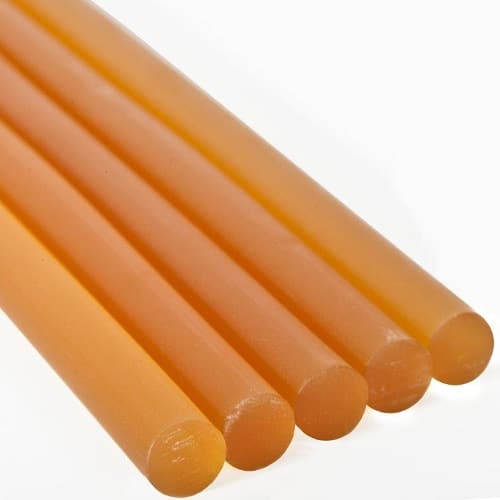
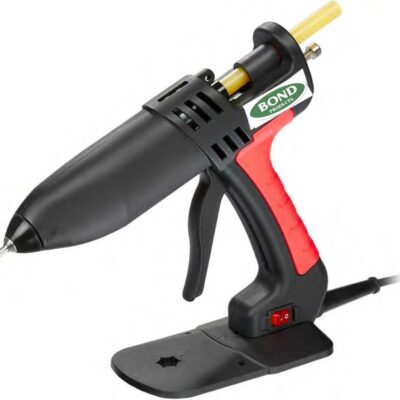
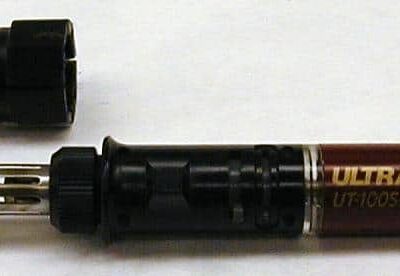
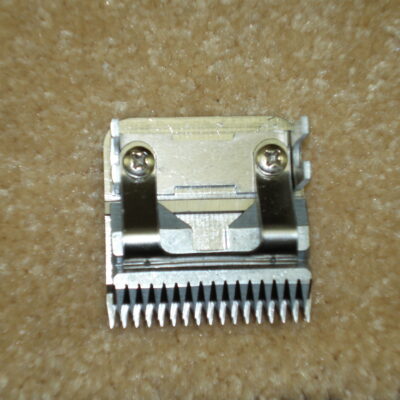
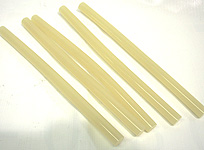


brianm –
Q&A Submitted 4/23/2015
How are your High Temperature glue sticks different(better) than what I find at my hardware store?
Jeff
Thanks for asking. Our hi-temp sticks are used where temperature will become hot enough to soften and sometimes melt (re-activate) normal glue. i.e. car interiors or outdoors in direct sunlight. Also being a polyamide makes it less reactive to salt water and other elements that can affect the normal glues we use from hardware stores etc.
The Bond Sales Team
brianm –
Polyamide
From Wikipedia, the free encyclopedia
A polyamide is a macromolecule with repeating units linked by amide bonds. [1] Polyamides occur both naturally and artificially. Examples of naturally occurring polyamides are proteins, such as wool and silk. Artificially made polyamides can be made through step-growth polymerization or solid-phase synthesis yielding materials such as nylons, aramids, and sodium poly(aspartate). Synthetic polyamides are commonly used in textiles, automotive applications, carpets and sportswear due to their high durability and strength. The transportation industry is the major consumer, accounting for 35% of polyamide (PA) consumption. [2]